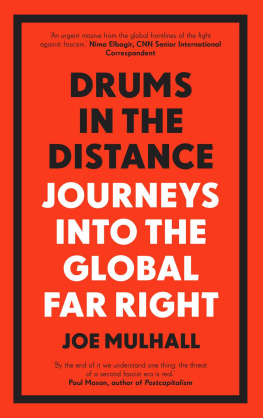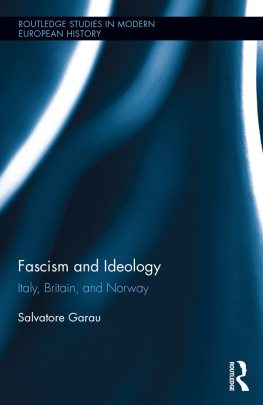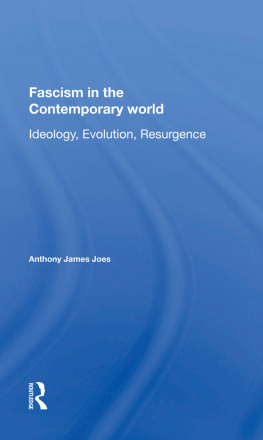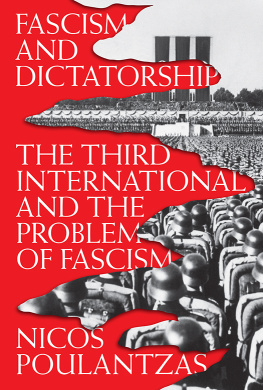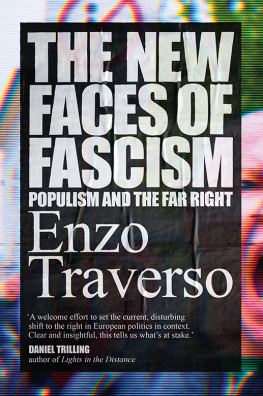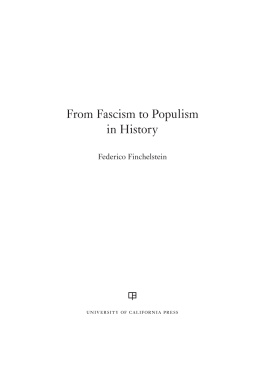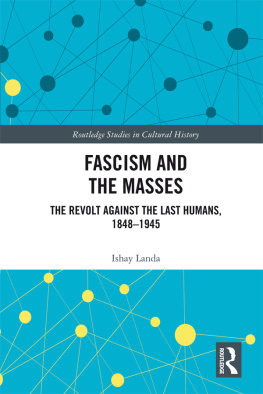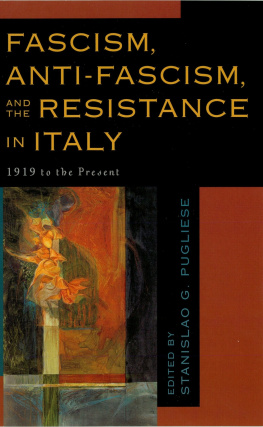British Fascism After the Holocaust
This book explores the policies and ideologies of a number of individuals and groups who attempted to relaunch fascist, antisemitic and racist politics in the wake of World War II and the Holocaust.
Despite the leading architects of fascism being dead and the newsreel footage of Jewish bodies being pushed into mass graves seared into societal consciousness, fascism survived World War II and, though changed, survives to this day. Britain was the country that stood alone against fascism, but it was no exception. This book treads new historical ground and shines a light onto the most understudied period of British fascism, whilst simultaneously adding to our understanding of the evolving ideology of fascism, the persistent nature of antisemitism and the blossoming of Britains anti-immigration movement.
This book will primarily appeal to scholars and students with an interest in the history of fascism, antisemitism and the Holocaust, racism, immigration and postwar Britain.
Dr Joe Mulhall is a historian of fascism and Senior Researcher at the anti-fascist organisation HOPE not hate.
Routledge Studies in Fascism and the Far Right
Series editors
Nigel Copsey
Teesside University, UK
Graham Macklin
Center for Research on Extremism (C-REX), University of Oslo, Norway
This new book series focuses upon fascist, far right and right-wing politics primarily within a historical context but also drawing on insights from other disciplinary perspectives. Its scope also includes radical-right populism, cultural manifestations of the far right and points of convergence and exchange with the mainstream and traditional right.
Titles include:
Hitler Redux
The Incredible History of Hitlers So-Called Table Talks
Mikael Nilsson
Researching the Far Right
Theory, Method and Practice
Edited by Stephen D. Ashe, Joel Busher, Graham Macklin and Aaron Winter
The Rise of the Dutch New Right
An Intellectual History of the Rightward Shift in Dutch Politics
Merijn Oudenampsen
Anti-fascism in a Global Perspective
Transnational Networks, Exile Communities and Radical Internationalism
Edited by Kasper Braskn, Nigel Copsey and David Featherstone
British Fascism After the Holocaust
From the Birth of Denial to the Notting Hill Riots 19391958
Joe Mulhall
For more information about this series, please visit: www.routledge.com/Routledge-Studies-in-Fascism-and-the-Far-Right/book-series/FFR
British Fascism After the Holocaust
From the Birth of Denial to the Notting Hill Riots 19391958
Joe Mulhall

First published 2021
by Routledge
2 Park Square, Milton Park, Abingdon, Oxon OX14 4RN
and by Routledge
52 Vanderbilt Avenue, New York, NY 10017
Routledge is an imprint of the Taylor & Francis Group, an informa business
2021 Joe Mulhall
The right of Joe Mulhall to be identified as author of this work has been asserted by him in accordance with sections 77 and 78 of the Copyright, Designs and Patents Act 1988.
All rights reserved. No part of this book may be reprinted or reproduced or utilised in any form or by any electronic, mechanical, or other means, now known or hereafter invented, including photocopying and recording, or in any information storage or retrieval system, without permission in writing from the publishers.
Trademark notice: Product or corporate names may be trademarks or registered trademarks, and are used only for identification and explanation without intent to infringe.
British Library Cataloguing-in-Publication Data
A catalogue record for this book is available from the British Library
Library of Congress Cataloging-in-Publication Data
Names: Mulhall, Joe, author.
Title: British fascism after the Holocaust : from the birth of denial to the Notting Hill riots 19391958 / Joe Mulhall.
Description: Abingdon, Oxon ; New York, NY : Routledge, 2020. | Series: Routledge studies in fascism and the far right | Includes bibliographical references and index.
Identifiers: LCCN 2020020162 (print) | LCCN 2020020163 (ebook) | ISBN 9781138624146 (paperback) | ISBN 9781138624139 (hardback) | ISBN 9780429452628 (ebook)
Subjects: LCSH: FascismGreat BritainHistory20th century. | AntisemitismGreat BritainHistory20th century. | RacismGreat BritainHistory20th century. | Great BritainRace relationsHistory20th century. | Great BritainPolitics and government20th century.
Classification: LCC DA588.M85 2020 (print) | LCC DA588 (ebook) | DDC 320.53/3094109044dc23
LC record available at https://lccn.loc.gov/2020020162
LC ebook record available at https://lccn.loc.gov/2020020163
ISBN: 978-1-138-62413-9 (hbk)
ISBN: 978-1-138-62414-6 (pbk)
ISBN: 978-0-429-45262-8 (ebk)
Typeset in Bembo
by Apex CoVantage, LLC
For my Mum and Dad
Contents
Guide
Many people have helped with this project but none more so than Professor Dan Stone who supervised my PhD, the final result of which is this book. His remarkable scholarship remains an inspiration, and his guidance and endless patience towards me, especially concerning my abysmal punctuation, has been invaluable. Special thanks also to Dr Andrea Mammone who provided PhD feedback and encouraged me to make this project more transnational in nature. Thanks also to Samuel Moyn, who kindly offered me a research assistantship at Harvard University. The transatlantic sections of this book are the result of that period in America.
I am hugely grateful to Craig Fowlie at Routledge for his friendship and advice and the series editors Graham Macklin and Nigel Copsey, without whom this would never have become a proper book.
I must also thank all my friends and colleagues at HOPE not hate, especially Nick Lowles, David Lawrence, Simon Murdoch and Patrik Hermansson for their support and feedback. They never let me forget that the most important reason to research fascism is to understand how best to fight it.
Finally, thanks go out to my friends who have loyally feigned interest in this book for years and my family, Mum, Dad, Kelly and Philip, who have always loved, encouraged and supported me.
By the time the cannons fell silent across Europe in 1945 the leading architects of fascism were dead. Yet the truth is that during the war years there were fascists in England working to keep the flame alive, and even before the killing had stopped British fascists were readying themselves to relaunch in the hostile postwar period.
Many contemporary historians have argued that the start of the war marked the end of prewar British fascism, while some go further and state that it marked the end of British fascism all together.the war years and into the postwar period. By understanding the phenomenon as continuous, the war and immediate postwar years take on a new significance, shifting from an abstract, irrelevant and often overlooked period in the history of British fascism, to a flame carrying period that kept the ideas of prewar fascism alive. It was the transition phase and training ground when the baton of British fascism was passed on to those individuals who later achieved unprecedented success with the National Font and then the British National Party. Only by understanding fascism in the immediate postwar period can we properly understand the much more influential far-right movements that emerged decades later.


